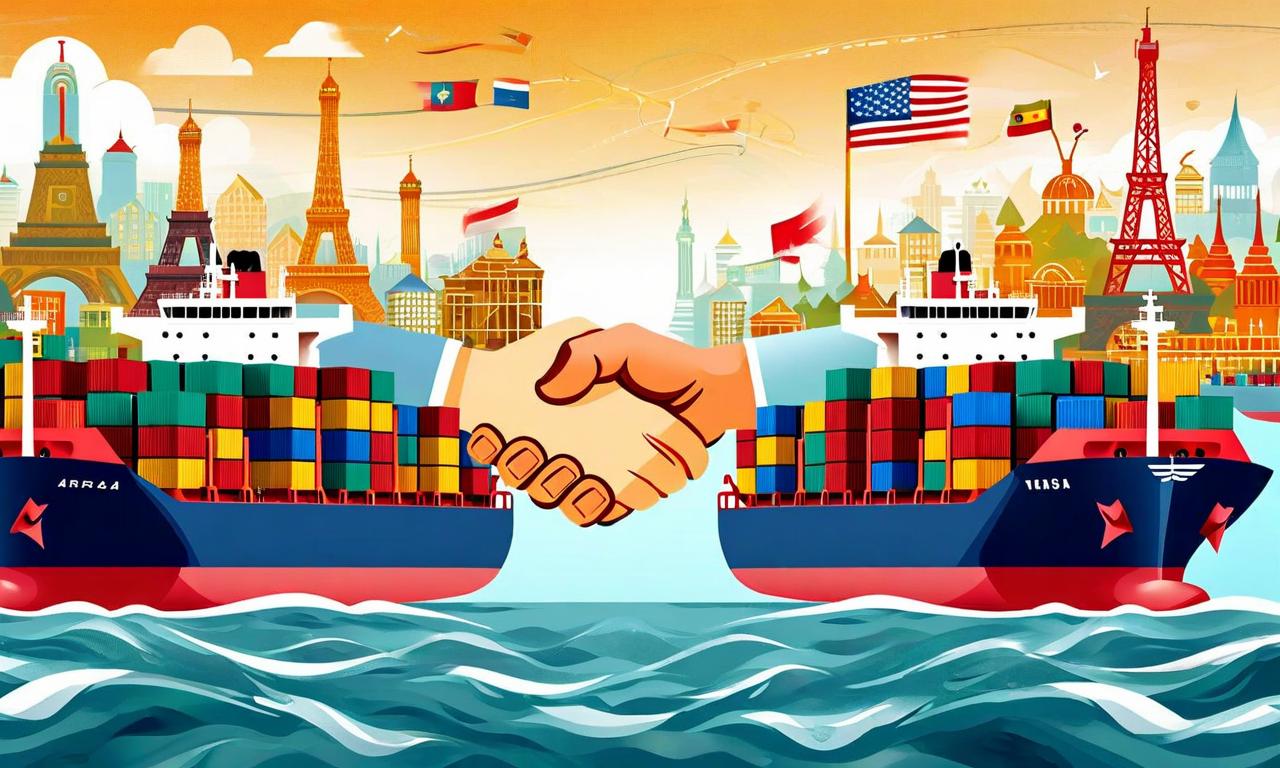EU Considers 19th Sanctions Package Against Russia: Banks and Energy Firms Targeted
The EU is considering a new round of sanctions against Russia, potentially the 19th package since the 2022 invasion of Ukraine. The proposed measures target Russian banks, energy companies, payment systems, and crypto exchanges. The package aims to restrict oil trade, expand export bans on military-related goods, and potentially deploy an anti-circumvention tool against Kazakhstan. The EU plans to coordinate efforts with the US, with both entities exploring new sanctions and secondary tariffs to pressure Russia into peace negotiations.

*this image is generated using AI for illustrative purposes only.
The European Union (EU) is contemplating a new round of sanctions against Russia, potentially marking the 19th package since Moscow's invasion of Ukraine in 2022. The proposed measures aim to intensify economic pressure on Russia, focusing on its financial and energy sectors.
Potential Targets and Measures
The sanctions package under consideration could impact approximately six Russian banks and energy companies. Key areas of focus include:
- Russian payment and credit card systems
- Crypto exchanges
- Further restrictions on oil trade
- Additional sanctions on Russia's shadow oil tanker fleet
- Removal of carve-outs for companies like Rosneft
- Export bans on goods used by Moscow's military industry
- Restrictions on foreign firms supplying military-related items
Coordinated Efforts with the US
The EU plans to align its actions with the United States. European officials are scheduled to visit Washington for discussions on joint action. US Treasury Secretary Scott Bessent has indicated that both the US and Europe are exploring new sanctions and secondary tariffs. The ultimate goal is to exert sufficient economic pressure on Russia to bring President Putin to the negotiating table for peace talks.
Expanding the Scope
The EU is broadening its focus beyond Russia. In a potential first, the bloc is considering deploying its anti-circumvention tool against Kazakhstan. This move could result in a ban on imports of specific machines allegedly being diverted to Russia for weapons production.
Additional Measures Under Consideration
The sanctions package may also include:
- Visa restrictions
- Port sanctions dealing with shadow vessels
- Restrictions on AI services with military implications
As discussions progress, the EU aims to craft a comprehensive package that addresses various aspects of Russia's economic activities while also targeting potential circumvention routes. The proposed measures reflect the EU's ongoing commitment to maintaining pressure on Moscow in response to its actions in Ukraine.
This development underscores the complex and evolving nature of international sanctions as a tool of foreign policy and economic pressure. The impact of these potential measures on Russia's economy and the broader geopolitical landscape remains to be seen.



























